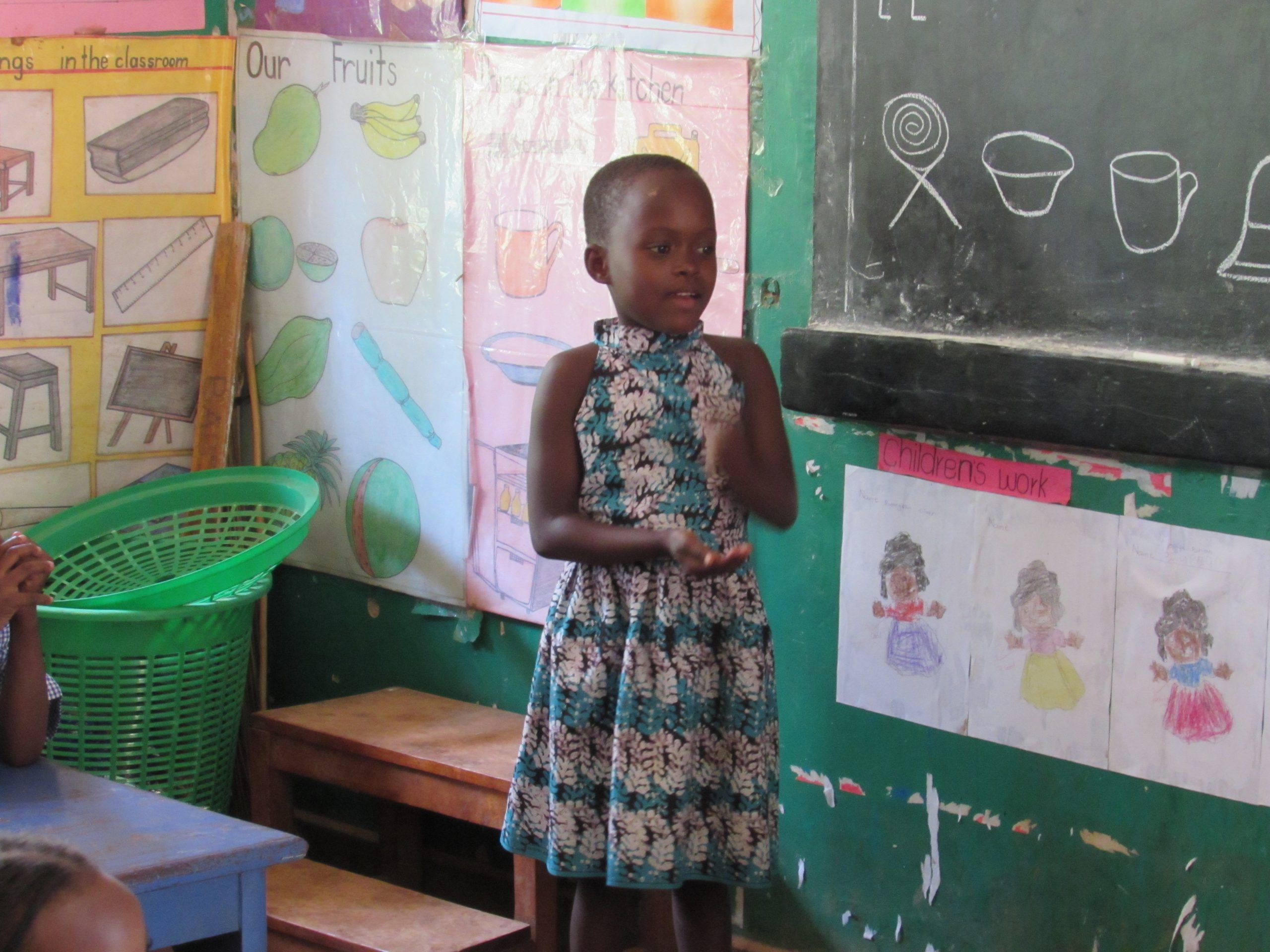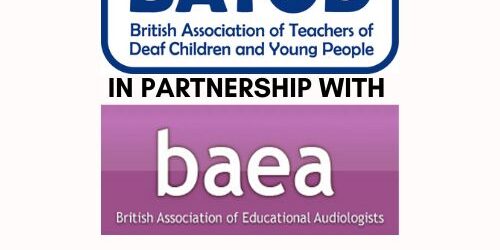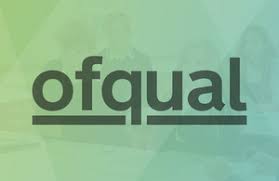International Deaf Education

Welcome to our international deaf education section.
Europe
News from FEAPDA
BATOD has always included articles and news from our international colleagues. Please find below some articles from our international professional peers alongside articles from UK professionals sharing details of their projects and links.
Many of the articles were written by our professional peers in a range of locations.
Africa
Auditory pigmentary syndromes – Ensink
Robbert JH Ensink reviews the most commonly encountered syndromes with (de)pigmentation disorders, such as Waardenburg syndrome, frequently accompanied by profound sensorineural hearing loss. He looks at the clinical characteristics and genetics involved as well as the studies on hereditary causes in the schools of the deaf.
Sub-Saharan Africa
Safeguarding deaf children DeafKidz International – Harrison
Stuart Harrison gives us an insight to his recent work with DeafKidz International which was founded in 2014 in response to the abuse of deaf children in sub-Saharan Africa. Today, DKI is emerging as the global leader for the protection and safeguarding of deaf children and young people centred on four key objectives: screening, communication, parents & families plus victims & survivors.
Resources for teachers to teach reading to DHH learners
Emmie Wienhoven, Kentalis, Generous Kazinda, Uganda, and Ezra Nathanael Ntazoya, Tanzania, share details of their recent pilot project in Uganda and Tanzania. The final material and training supports teachers in delivering the national curriculum while using DHH specific strategies for teaching, tools for building language skills and tools for reading instruction.
Burundi
Marie Ange Nimpaye shares her parent experience on raising two deaf children in Burundi from slowly realising her older daughter was deaf, to the breakthrough when she found a school for deaf children where she sent her daughter, to her husband learning sign language so he could communicate with his daughter and later the whole family being able communicate with their deaf son, and finally to becoming a founder member of a new parents association called the Association of Parents for the Education of Deaf Children in Burundi (APEES Burundi).
DR Congo
Special education in DR Congo – Byaruhanga
Ismael Byaruhanga, a PhD candidate at University of Cologne in Germany shares an interesting insight into deafblindness in the Democratic Republic of Congo including the case study of a family with seven children all with visual impairment who were not able to communicate properly with their parents but had developed their own form of tactile hands-on signing between siblings.
Education program for learners – the African context – Byaruhanga
Ismael K Byaruhanga highlights the audiology service provision in his educational setting in the Democratic Republic of the Congo where the education of learners with hearing impairment is mainly perceived as a charitable service and was pioneered by non-governmental organizations and churches – he looks at the gaps in implementation of special needs education as well as the social stigma and the fact that there are only 2 trained audiologists serving a population of about 85 million.
Ghana
Deaf education in Ghana – Fobi et al
Daniel Fobi, Joyce Fobi and Obed Appau share their professional reflections on deaf education in Ghana which goes from 1957 to the development of Ghanaian Sign Language and now there are 17 schools of the deaf and six tertiary institutions provide training for teachers who are posted as special educators to support deaf children at the various special schools in the country.
Malawi
Improving education for children with hearing loss in southern Malawi
Meera Rajasooriar provides a summary of of Sound Seekers’ recent project to improve education as well as hearing and ear care provision in Malawi where children with disabilities are one of the most excluded groups. The project established comprehensive audiology services in Queen Elizabeth Central Hospital and delivered mobile ear and hearing care outreach services to rural and remote areas in Southern Malawi.
Tanzania
Effects of sign language knowledge on examination results – Kilave
Yohanis Kilave summarises his research study on examination results of Deaf and Hard of Hearing (D/HH) learners in Tanzania which aimed to determine whether the knowledge of sign language affected the writing skills of D/HH learners.
Uganda
Losing hearing in a multilingual country – Mukaaya
Eddie Mukaaya summarises his personal account of deafness in a country where there are no early intervention services and where few deaf children have the opportunity to attend school at all and those that do are left to sit comprehending nothing in a class, with teachers who are unaware of their learning needs. As his own daughter is deaf, he and his wife pioneered Hear His Voice Uganda, a not for profit non-governmental organization seeking to change the landscape of Ear and Hearing Care services in Uganda and demystify the impact of hearing loss on children, individuals, families and the community at large.
Educating children who are deaf in Uganda – Namirembe
Bernadatte Namirembe shares an insight into deaf education in Uganda where deaf or physically impaired children often unable to go to school and are regarded as ‘kasiru’ (meaning stupid), the teachers do understand the needs of deaf children or how they learn – however, since the Ugandan Government signed and ratified the UN Convention of Rights of Persons with Disabilities (CRPD) in 2008 there is hope for the future.
Ways of knowing among Ugandan deaf children – Tomkins
Alexandra Tomkins, PhD Candidate, shares an insight into her film project work in Uganda which started from the premise that deaf people have excellent visual perception, her current research uses film, photography, and other visual arts to investigate how deaf children in Uganda acquire knowledge.
Kenya
My son’s hearing journey – Kenyan perspective – Kittur
Steve Kittur shares his heartfelt personal account as a father of a deaf child in Kenya, the frustration when specialists refused to recognise something was wrong and the lack of support even after a diagnosis of congenital deafness. Taking drastic action, they raised the money for a cochlear implant and travelled huge distances to get appropriate therapy and, finally, retraining to become a speech therapist himself and he is no able to support not only his own child but many other deaf children as well.
An update from Kenya – Gardner
Teresa Quail interviewed Rosie Gardner about her teacher training project in Nairobi which began when she went to visit Helen Moorehead’s school in a remote and poor area of Kenya and then continued as she then concentrated on raising money in the UK which paid for Nicholas, an audiologist to visit the school and which later led to being able to pay for 25 teachers of the deaf to come to Nairobi for a day’s training.
Rosemary Gardner, a retired QToD, updates us on her current project work in Kenya which in 2019 included a one day training in Nairobi to Teachers of the Deaf, Speech Therapists and Audiologists but which in February 2020 became a 2-day conference again in the Rosa Mystica Spiritual Centre in Nairobi. Seven parents also came along which was wonderful as many of these parents have been key to moving things forward in this part of the world.
Rwanda
Louis Ngabo, founder of Nyabihu School for the Deaf, describes the impact of the pandemic on families supported by the school which helps them to cope financially or with face masks so that they can keep going and stay safe and, in turn, continue to encourage and support the education of their deaf children.
Transition – Rwandan Deaf Education
Isobel Blakeley and Teresa Quail describe a return visit to the UK, following Isobel’s VSO placement in Rwanda, by three individuals she had met – and to discuss how they could adapt some of what they saw in this country to their own situation in a very different environment.
Poster presentation – Worldwide Parental Aspirations and Fears echoed from Rwanda Teresa Quail Rwanda Poster
East Africa
Deafblind education in Africa – Clark
Rodney Clark, past CEO of Sense and current Chair of Deaf Reach UK, shares some background to deafblind provision in East Africa – Deafblind International (DbI) was established in 1976 and has always been a very strong worldwide network. He was its Secretary/Treasurer for 20 years and was in the privileged position of watching the growth of services, particularly education, across many developing countries during that time and regularly approached by delegates from these countries seeking help at the most basic levels.
Collaborative working – East Africa – Quail
A summary from Teresa Quail on her visit to Rwanda and Uganda in February 2019 which was helped by the Mary Grace Wilkins travel scholarship during which she met many inspirational people who devote their lives to making a difference for and with deaf children, young people and their families which enabled Teresa to reflect on how UK deaf educationalists could help develop relationships directly with a wider range of professional peers.
Teresa Quail gives an update on the impact of the hearing aid related donations made by BATOD members and colleagues from charity groups, deaf education associated businesses and local authorities and how she used her trip to set up hearing aids with soft tip moulds, whilst they still awaited hard moulds to arrive from the local Audiologist, as well as introducing the Headteacher to a simple computer based audiogram to assist with monitoring changes in a student’s deafness profile and managed to also add on a visit to Kenya and start up a training programme within 24 hours of arrival with the help of Brother Peter and his colleagues.
South America
For the Sarahs of the world – Mand Lewin
Adrienne Mand Lewin tells us Howard Weinstein’s story and the journey of Solar Ear, an organisation which provides hearing aids and changes lives through social entrepreneurship and supplies an affordable solar powered alternative to existing hearing aids. Solar Ear is structured as a sustainable social business to give people with a disability the chance to thrive by employing them and empowering them as workers.
Central America
Working with deaf people in Nicaragua Kathy Owston reports from her new adventure where she is trying to use her skills to help the local deaf community despite the difficulties of not knowing the official Nicaraguan Sign Language and most pupils not having access to hearing aids. She also visited Famnuel Ubeda, a journalist who has founded an arts and media project for deaf people.
Communication In Nicaragua – Owston
Kathy Owston continues to report on her support to deaf children in Nicaragua – in particular her time working in the special school in Estelí which has centred on gathering as much information as possible about what is happening there and to encourage communication between the different groups who are working in the field of deafness so that people work together more cohesively.
Finding my niche in Nicaragua – Owston
Kathy Owston provides a further update on her ongoing work in Nicaragua, partly supported by BATOD, where she has been linking up with a US-funded NGO called Mayflower Medical Outreach (MMO) and, as a long-term volunteer with their programme, she has joined their Management Board. She still finds great satisfaction in seeing the transformation in the lives of the children who can now communicate much more fully with their families and their peers.
Nicaragua in crisis – thwarting our hopes for Deaf Education
A final report from Kathy Owston on her work to improve the lives of deaf children in Nicaragua covers a time of fear, violence and turmoil when she could no longer work, students had to be sent back to their rural areas and all the plans for a much-needed early detection of deafness programme had to be halted.
Asia
Working in Bangalore and the state of Karnataka, India
Sandra David reports from her year working in India as a trainer/consultant with Deaf Child Worldwide, which is the international development arm of the National Deaf Children’s Society, from September 2016 to September 2017. She spent it delivering a training plan with three modules – ‘Being Deaf’, ‘Teaching and Learning Pedagogy’ and ‘Holistic Support for the Deaf child’.
Teaching Deaf Learners (Kentalis Conference) Presentations including update from Sri Lanka
Teresa Quail summarises an opening presentation by Dr Harry Knoors, from the 3rd international Kentalis Conference Teaching Deaf Learners (TDL2019) held in November 2019 and which addressed the vital question ‘How can deaf and hard-of-hearing students best be taught given their individual strengths and needs?’ as well as giving a comprehensive overview of this international Conference.
Volunteering in Nepal and Sri Lanka
Anne-Marie Martin looks back on an exciting trip with Year 12 students from Mary Hare School, sharing their experience with young deaf people in these countries, trekking in the foothills of the Himalayan mountains and working in Sri Lanka refurbishing a building, clearing a beach of rubbish and even releasing two-day old hatchling turtles into the sea.
VoluntEars Keegan Hall-Browne tells his story about realising the power of sign and the strength of the Deaf community, utilising skills, passion and enthusiasm for educating and working with deaf children in Sri Lanka.
North America
Australia





